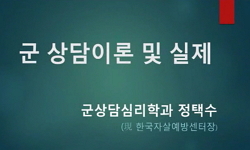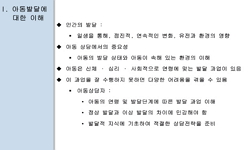The purpose of this study was to verify the relation between counselor's burn out and personality character based on the Big Five, and to explain which factor among character factor mostly impacts on counselor's burnout. Study problems to archive st...
http://chineseinput.net/에서 pinyin(병음)방식으로 중국어를 변환할 수 있습니다.
변환된 중국어를 복사하여 사용하시면 됩니다.
- 中文 을 입력하시려면 zhongwen을 입력하시고 space를누르시면됩니다.
- 北京 을 입력하시려면 beijing을 입력하시고 space를 누르시면 됩니다.
https://www.riss.kr/link?id=T10835610
- 저자
-
발행사항
서울 : 숙명여자대학교 대학원, 2006
-
학위논문사항
학위논문(석사) -- 숙명여자대학교 대학원 , 교육심리학과 , 2007. 2
-
발행연도
2006
-
작성언어
한국어
- 주제어
-
발행국(도시)
서울
-
형태사항
iv, 46 ; 26 cm
-
일반주기명
지도교수: 김봉환
- 소장기관
-
0
상세조회 -
0
다운로드
부가정보
다국어 초록 (Multilingual Abstract)
Study problems to archive study purpose were as following: first, what is the difference on burnout depend on the Big Five. Second, relationship between Big Five and burnout. Third, which factor influences burnout most among the Big Five.
Study objects were 74 counselors who work full time or part time at counsel related facility around seoul and kyungki area. Measurement tool which was used was IPIP (International personality item pool) which was a personality measure made by Goldberg (1999) and translated by Yoo, Lee and Ashton (2004). And MBI(Maslach Burnout Inventory), by Maslach and Jackson (1996) and translated by Yu and Park(2002) was used to measure counselor's burnout degree. Collected data went through t-test, One-way ANOVA, correlation analysis, stepwise multiple regression.
The results of this study were as follows: First, burnout turned out to be different in accordance with personality character. In emotional exhaustion, there was difference between two groups divided by Neuroticism and Extroversion by degree, but no difference between two groups divided by Openness, Agreeableness, and Conscientiousness. In depersonalization, there was a difference between two top/down groups in Neuroticism, Extroversion and Openness grade. In burnout due to emotional exhaustion, depersonalization and diminution of sense of achievement, there was a difference between top/down groups divided by Neuroticism, Extroversion and Openness grade.
Second, in relation with burnout among the Big Five, Neuroticism showed a deep relation with emotional exhaustion and depersonalization, and Openness showed deep relation with emotional exhaustion, depersonalization and diminution of personal accomplishment. This result seems to be related with introvert character and 3 sub dimension of burnout. In total burnout, Neuroticism, Extroversion and Openness showed relationship.
Third, Neuroticism showed the largest influence to burnout among the Big Five, and Extroversion showed next largest influence.
In this study, I examined influence to counselor's burnout with the Big Five which can systemically explain personal character among counselor's change cause which affects counselor's burnout. The significance of this study is that it increases understanding to counselor's burnout and it can be used as a fundamental data to precaution.
The purpose of this study was to verify the relation between counselor's burn out and personality character based on the Big Five, and to explain which factor among character factor mostly impacts on counselor's burnout.
Study problems to archive study purpose were as following: first, what is the difference on burnout depend on the Big Five. Second, relationship between Big Five and burnout. Third, which factor influences burnout most among the Big Five.
Study objects were 74 counselors who work full time or part time at counsel related facility around seoul and kyungki area. Measurement tool which was used was IPIP (International personality item pool) which was a personality measure made by Goldberg (1999) and translated by Yoo, Lee and Ashton (2004). And MBI(Maslach Burnout Inventory), by Maslach and Jackson (1996) and translated by Yu and Park(2002) was used to measure counselor's burnout degree. Collected data went through t-test, One-way ANOVA, correlation analysis, stepwise multiple regression.
The results of this study were as follows: First, burnout turned out to be different in accordance with personality character. In emotional exhaustion, there was difference between two groups divided by Neuroticism and Extroversion by degree, but no difference between two groups divided by Openness, Agreeableness, and Conscientiousness. In depersonalization, there was a difference between two top/down groups in Neuroticism, Extroversion and Openness grade. In burnout due to emotional exhaustion, depersonalization and diminution of sense of achievement, there was a difference between top/down groups divided by Neuroticism, Extroversion and Openness grade.
Second, in relation with burnout among the Big Five, Neuroticism showed a deep relation with emotional exhaustion and depersonalization, and Openness showed deep relation with emotional exhaustion, depersonalization and diminution of personal accomplishment. This result seems to be related with introvert character and 3 sub dimension of burnout. In total burnout, Neuroticism, Extroversion and Openness showed relationship.
Third, Neuroticism showed the largest influence to burnout among the Big Five, and Extroversion showed next largest influence.
In this study, I examined influence to counselor's burnout with the Big Five which can systemically explain personal character among counselor's change cause which affects counselor's burnout. The significance of this study is that it increases understanding to counselor's burnout and it can be used as a fundamental data to precaution.
국문 초록 (Abstract)
연구목적을 달성하기 위해 설정한 연구문제는 다음과 같다. 첫째, 5요인 성격 특성에 따라 소진은 어떠한 차이가 있는지 알아본다. 둘째, 소진은 5요인 성격특성과 어떠한 관계가 있는지 알아본다. 셋째, 5요인 성격 특성 중에서 소진에 영향을 미치는 요인은 무엇인지 알아본다.
연구대상은 서울․경기권 소재의 상담관련기관에서 전담 혹은 시간제로 현재 상담을 하고 있는 74명의 상담자들이었다. 측정도구는 상담자의 소진 정도를 측정하기 위하여 Maslach와 Jackson(1996)이 개발한 MBI(Maslach Burnout Inventory)를 유성경과 박성호(2002)가 번안한 것을 사용하였다. 5요인 성격을 측정하기 위해서는 Goldberg(1999)가 제작한 성격척도인 IPIP(International Personality Item Pool)를 유태용, 이기범, Ashton(2004)이 번안한 것을 사용하였다.
수집된 자료는 SPSS 통계프로그램을 이용하여 t-검증, 일원변량분석, 상관분석, 단계적 회귀분석을 실시하였다.
본 연구의 결과는 다음과 같다.
첫째, 소진이 성격 특성에 따라 차이가 있는 것으로 나타났다. 성격 특성 중에서도 신경증적인 성격일수록, 내향적이고 개방성이 부족할수록 소진을 더 자주 경험하는 것으로 나타났다.
둘째, 소진과 5요인 성격 특성과의 관계에서 신경증은 정서적 고갈과 비인간화와 관련이 깊은 것으로 나타났고, 외향성의 경우 정서적 고갈, 비인간화, 성취감 감소와 관련이 있는데, 이는 내향적인 성격과 소진의 세 하위 차원과 상관이 있다고 볼 수 있다. 전체 소진과 관련하여서는 신경증과 외향성, 개방성이 관련이 있는 것으로 나타났다.
셋째, 5요인 성격 특성 중 신경증이 소진에 가장 큰 영향을 미치고 있으며 그 다음은 외향성인 것으로 나타났다.
본 연구는 상담자의 소진에 영향을 미치는 상담자 변인 중에서 개인적인 특성을 체계적으로 설명할 수 있는 성격 5요인을 가지고 상담자의 소진에 미치는 영향력을 알아보았다. 이는 상담자의 소진에 대한 이해를 증진시킴은 물론, 예방 차원에서도 기초 자료로 활용될 수 있다는 데 의의를 가진다.
본 연구는 상담자의 소진과 5요인 성격이론에 근거한 성격특성과의 관련성을 알아보고, 성격 특성 중 어느 요인이 상담자의 소진에 가장 영향을 미치는지 밝혀 보고자 하였다. 연구목적을...
본 연구는 상담자의 소진과 5요인 성격이론에 근거한 성격특성과의 관련성을 알아보고, 성격 특성 중 어느 요인이 상담자의 소진에 가장 영향을 미치는지 밝혀 보고자 하였다.
연구목적을 달성하기 위해 설정한 연구문제는 다음과 같다. 첫째, 5요인 성격 특성에 따라 소진은 어떠한 차이가 있는지 알아본다. 둘째, 소진은 5요인 성격특성과 어떠한 관계가 있는지 알아본다. 셋째, 5요인 성격 특성 중에서 소진에 영향을 미치는 요인은 무엇인지 알아본다.
연구대상은 서울․경기권 소재의 상담관련기관에서 전담 혹은 시간제로 현재 상담을 하고 있는 74명의 상담자들이었다. 측정도구는 상담자의 소진 정도를 측정하기 위하여 Maslach와 Jackson(1996)이 개발한 MBI(Maslach Burnout Inventory)를 유성경과 박성호(2002)가 번안한 것을 사용하였다. 5요인 성격을 측정하기 위해서는 Goldberg(1999)가 제작한 성격척도인 IPIP(International Personality Item Pool)를 유태용, 이기범, Ashton(2004)이 번안한 것을 사용하였다.
수집된 자료는 SPSS 통계프로그램을 이용하여 t-검증, 일원변량분석, 상관분석, 단계적 회귀분석을 실시하였다.
본 연구의 결과는 다음과 같다.
첫째, 소진이 성격 특성에 따라 차이가 있는 것으로 나타났다. 성격 특성 중에서도 신경증적인 성격일수록, 내향적이고 개방성이 부족할수록 소진을 더 자주 경험하는 것으로 나타났다.
둘째, 소진과 5요인 성격 특성과의 관계에서 신경증은 정서적 고갈과 비인간화와 관련이 깊은 것으로 나타났고, 외향성의 경우 정서적 고갈, 비인간화, 성취감 감소와 관련이 있는데, 이는 내향적인 성격과 소진의 세 하위 차원과 상관이 있다고 볼 수 있다. 전체 소진과 관련하여서는 신경증과 외향성, 개방성이 관련이 있는 것으로 나타났다.
셋째, 5요인 성격 특성 중 신경증이 소진에 가장 큰 영향을 미치고 있으며 그 다음은 외향성인 것으로 나타났다.
본 연구는 상담자의 소진에 영향을 미치는 상담자 변인 중에서 개인적인 특성을 체계적으로 설명할 수 있는 성격 5요인을 가지고 상담자의 소진에 미치는 영향력을 알아보았다. 이는 상담자의 소진에 대한 이해를 증진시킴은 물론, 예방 차원에서도 기초 자료로 활용될 수 있다는 데 의의를 가진다.
목차 (Table of Contents)
- Ⅰ. 서론 = 1
- 1. 연구의 필요성과 목적 = 1
- 2. 연구문제 = 3
- Ⅱ. 이론적 배경 = 4
- Ⅰ. 서론 = 1
- 1. 연구의 필요성과 목적 = 1
- 2. 연구문제 = 3
- Ⅱ. 이론적 배경 = 4
- 1. 소진 = 4
- 2. 5요인(Big-Five) 성격이론 = 9
- 3. 소진과 성격과의 관계 = 13
- Ⅲ. 연구방법 = 15
- 1. 연구대상 = 15
- 2. 측정도구 = 17
- 3. 자료수집절차 = 19
- 4. 자료분석 = 20
- IV. 연구결과 = 21
- 1. 기술통계치 = 21
- 2. 상담자의 소진 정도 = 22
- 3. 성격 특성에 따른 소진 정도의 차이 = 24
- 4. 소진과 5요인 성격 특성과의 상관 = 26
- 5. 5요인 성격 특성이 소진에 미치는 영향 = 28
- V. 논의 = 30
- Ⅵ. 결론 및 제언 = 33
- 1. 결론 = 33
- 2. 제언 = 35
- 참고문헌 = 36
- ABSTRACT = 42
- 부 록 = 44












